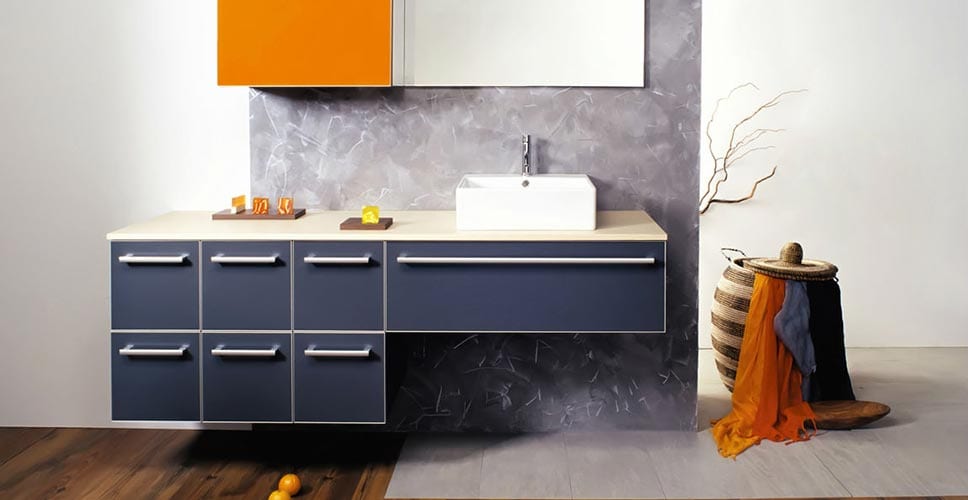How Applying the Basic Tenants of Feng Shui into Your Home Can Help You Establish Calm

What is Feng Shui? The Feng Shui Society says the Feng Shui definition is “ the art and science of designing harmonious environments based on the profound Chinese understanding of how people are connected to and affected by their close surroundings.”
But how can the Feng Shui meaning be applied to your everyday life? By first understanding Feng Shui, its tenets, and its deep cultural significance in Chinese culture, you can learn how to use the design artform to create a harmonious home. Doing so creates a feeling of calm for yourself and everyone within the home.
What is Feng Shui?
Feng Shui is a Chinese philosophical system that focuses on the movement of energy in any space through natural elements, either literally or symbolically. In Feng Shui, energy is called “Chi.” Correcting the movement of Chi is called a “cure.” The goal of the many Feng Shui cures is to move energy, or Chi, through a space.
Chi can get trapped in a room or move through so fast that it doesn’t give benefit at all. Feng Shui promotes harmony and balance, which is something that most of us would like more of in our homes.
The Feng Shui meaning translates, literally, into “wind and water.” A simple way to think about Chi in your home would be to think of it as you would a breeze. Your goal in furniture placement and interior colors is to help the breeze move through your home. Decorating to improve the flow in your home can include moving furniture, adding accessories, or painting.
Your goal is to create a balanced space that feels fresh and relaxing. There’s no need to add specific accessories if you’re just incorporating the basic principles of Feng Shui to improve your home’s flow. Just incorporating a few Feng Shui ideas in each room can transform your home easily.
The history of Feng Shui:
The Feng Shui Institute dates the practice back as far back to 2,000 B.C. It evolved over time with developments such as the compass and astrology for divination. Farmers and villagers practiced Feng Shui for luck. They noticed that villages placed in “auspicious” locations, such as near a mountain or stream, prospered and grew in wealth and power.
The proposed benefits of Feng Shui:
Some of the most important benefits of Feng Shui are health-related. According to Forbes, the main benefit of Feng Shui is stress reduction, which creates:
- Blood sugar balance
- Stronger immune system
- Lower depression
- A reduction in anxiety
What are the basic principles of Feng Shui?
The Archistar Academy teaches architecture students the basic principles of Feng Shui, which they use in their building practices. The basic principles break down into several important components.
The first principle is the Five Elements Theory. The elements of Fire, Earth, Wood, Water, and Metal should be represented in a correct fashion throughout the space. If the elements are placed in the wrong locations and proportions, they can be destructive.
The second essential principle is the Bagua. Where the elements are represented is just as important as which one. A Bagua is a map that charts out the energy or Chi centers of a space, which a Feng Shui practitioner can use as guidance.
The purpose of the two principles mentioned is to promote the proper flow of Chi — or energy — through your home.
How to incorporate Feng Shui in your home:
Kitchen
Your kitchen represents health and family in Feng Shui principles. The simplest way to achieve balance in the kitchen is to create a welcoming space with a layout that flows and seating that encourages the gathering of friends and family. Cheerful colors, like yellow, are perfect for a kitchen, and decor accessories and motifs featuring healthy food promote positive energy.
To balance the large fire and water elements in your kitchen, encourage wind and earth elements by adding planted herbs to a windowsill. Make sure that your kitchen window coverings allow plenty of natural light and fresh air.
Living room
Your living room is the Feng Shui center of personal wealth and family well-being. Most living rooms are the largest space in our homes, so you’ll want to balance the room with large furniture and accessories to slow the rushing Chi.
Bright colors are desirable for a living room, but if that isn’t your style, try neutral colors with fresh accent colors. Arrange furniture to encourage interaction and friendship.
Bedrooms
Your Feng Shui bedroom should be a relaxing retreat that provides a quiet space for rest and a space to connect with your loved one. Avoid jarring or loud artwork, accessories, and colors in the bedroom.
Pink is the suggested bedroom color for positive Chi, but it’s not a color that’s universally popular. Adding a few small accessories in a muted pink color or fresh pink flowers can promote romantic energy in your bedroom.
Bathroom
Feng Shui in your bathroom should focus on balancing the water element. Blue and green are popular bathroom colors, along with shiny surfaces and metal, which all represent the Feng Shui Water element. Because the activities in your bathroom are primarily water-based, it’s easy to see how your bathroom’s energy gets totally out of balance.
To balance the abundance of water energy, (which can soak up Chi and make it heavy,) add elements of wood and warm colors. You can also add candles to your bathroom to bring the fire element to warm it up.
The bottom line
Everyone appreciates the benefits of beautiful, comfortable living environments. With a few simple adjustments, you can incorporate Feng Shui techniques to make every room in your house feel calm and happy.
Frequently asked questions
What’s the purpose of Feng Shui?
Feng Shui’s purpose is to promote harmony in your home. A harmonious home brings peace and relaxation, attracting good health and luck.
What are the rules of Feng Shui?
There are many rules in Feng Shui. The main principles include the use of the Five Elements of Wood, Water, Air, Fire, and Metal to promote better energy (Chi) flow.
How do you Feng Shui your home?
To Feng Shui your home, you’ll need to learn about how to emphasize certain elements and downplay others which may be too strong. For example, a kitchen is strong in the Fire element. Adding a small herb plant balances the heavy fire by introducing wood into the space.
Cynthia Paez Bowman contributed to this post.



